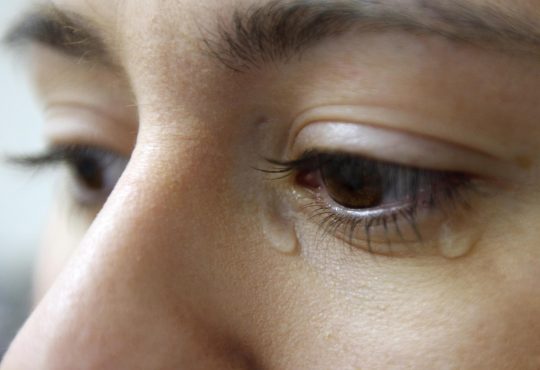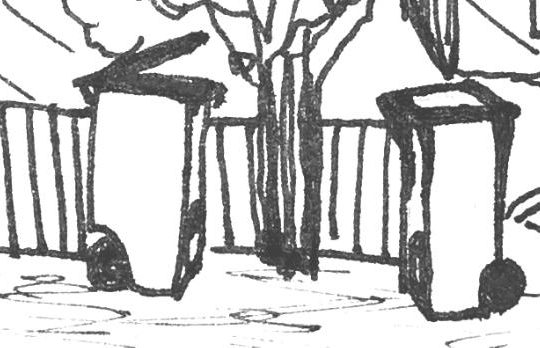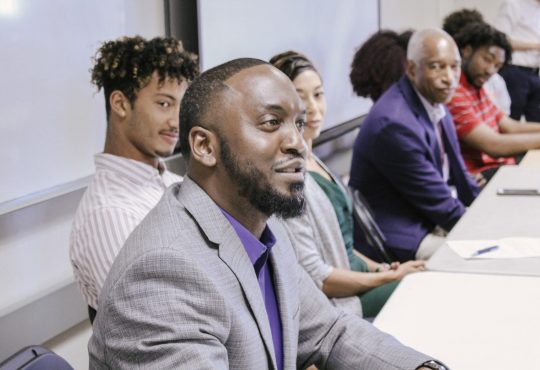
When the Race and Pedagogy Conference hosted “The Sex Talk You Never Had and the Disparities It Created,” everything was up for discussion. We talked about double-sided dildos, mutual masturbation, anilingus and even urine.
Lance Rivera-Toledo held the discussion and acknowledged the range of people in his audience. As the prevention and health coordinator at the Pierce County AIDS Foundation (PCAF), Rivera-Toledo told us not to be afraid. He had three goals for his talk: for us to learn how to prevent HIV, accept those living with HIV and understand what HIV is.
HIV, or Human Immunodeficiency Virus, is slow-growing and hard to track. Rivera-Toledo made it clear from the beginning that HIV is not something you can get by breathing the same air as someone with the virus. There is no risk of getting the virus by sharing eating utensils, masturbating on your own or having sex with an unaffected person. The only way you can get HIV is if one of the five transmissible fluids — blood, semen, vaginal fluid, rectal fluid and breast milk — get into your bloodstream. Things like sweat, saliva, tears, urine and feces cannot transmit HIV.
Rivera-Toledo informed the room that those who share his identity as a gay black man share the high risk of receiving HIV. He said this was because of the inherent racism in sex education and a result of the stigma that is created from the lack of information about HIV. According to Rivera-Toledo, trans women of color also have a high risk of contracting HIV because of the social environment that struggles to educate marginalized people about their bodies. There is a lack of trust in the world of sex and many people who learn they have HIV are surprised. The presentation focused on the level of transmission risk associated with different activities.
French kissing a person with HIV or engaging in mutual masturbation, fellatio, cunnilingus with a condom, anilingus with a dental dam or contact with their urine pose a relatively low of transmitting HIV. The only reason these activities have any risk at all is because there could be cuts in your mouth. HIV can’t live outside the body for longer than a few minutes and has to get into your bloodstream in the form of one of the transmissible fluids very quickly in order for you to be in danger.
One thing that was noted is that when it comes to lowering the risk of transmission, lube is your best friend. Lube can keep you safer from tearing anything during vaginal or anal sex. The person receiving sex from a partner with a condom has moderate risk of contracting HIV and should use lube in order to be as safe and comfortable as possible. Dildos and other sex toys have a lower risk of transmitting anything as long as they are cleaned between uses.
If you can’t be 100 percent sure about your sex partners’ status, you should use a barrier method.
Part of the reason anal sex is at a higher risk than activities like French kissing is because of the mucosal tissue in your anus (the same tissue as a vagina). HIV needs to get into your bloodstream for it to pose any threat, and mucosal tissue absorbs what it comes in contact with, thereby increasing the risk. The stigma surrounding anal sex isn’t built on any medical reasoning because it is just as safe as having vaginal sex.
Vaginal or anal sex without a condom poses the highest risk to getting HIV if one partner has it. The person receiving is always at higher risk, but using a form of protection such as internal and external condoms helps protect both partners.
Some prevention methods include condoms, abstinence, consent and honesty and PreP. PreP is a medication that prevents the spread of HIV from person to person. The drug is harder to access for some communities and it isn’t advertised as well as birth control or other sexual medications. There is currently a movement to make people more aware of PreP and to bring the price of the drug down.
Rivera-Toledo ended his talk by stating that the only way infection could occur was if you came into contact with someone who was already infected. It is important to reduce the stigma increase education about HIV. There are couples in the world that love each other despite one partner having the virus. By educating yourself and communicating with your partner(s), you can continue having sex and stay safe.






